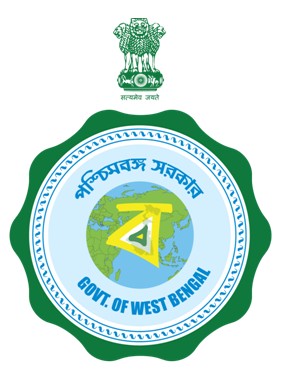|
1. Title:Catalyzing Change: Empowering Villages for
Sustainable Progress
2. Objective:
Our college's resolute aim among many others is to
transform the lives of students hailing from neighboring villages, where
the burdens of social, economic, and geographic constraints hamper their
pursuit of a normal, worry-free student life. We firmly believe that no
student should ever suffer from hunger, as it inhibits their ability to
grasp knowledge, no matter how inspiring the teachers are or
well-planned or enriching the curriculum is. Beyond eradicating economic
obstacles, we strive to ignite global awareness, instill values of
cleanliness, and nurture holistic growth in these communities. By
embracing mainly six villages - Banshdiha, Jhilimili, Churku, Ramgar,
Korapara and Muchikata - under the banner of NSS and UBA, we endeavor to
foster a renewed sense of the importance of education and unleash the
potential that lies dormant. Together, we look forward to build a future
where dreams meet reality with unwavering determination and boundless
hope.
3. The context:
Our resolute aim is to transform the lives of entire
villages, overcoming social, economic, and geographic constraints, by
eradicating hunger, igniting global awareness, and fostering holistic
growth to build a brighter future for students and their families alike.
4. The Practice:
Our college has embraced an empathetic practice by
adopting six nearby villages - Bansdiha, Jhilimili, Churku, Ramgar,
Korapara and Muchikata - under the banner of NSS and UBA. These villages
face formidable challenges due to their social, economic, and
geographical conditions, significantly impacting the students hailing
from these areas. Responding to this profound need, our proactive
teaching and non-teaching staff have wholeheartedly taken the
responsibility of making a tangible and positive difference in the lives
of these communities which also consists most of our student base.
To address the unique needs of these villages, starting
with a discussion with the Gram-Sabha, our dedicated teams of
enthusiastic students, teachers, and staff meticulously collected
real-world data sets, including the number of earning members in each
household, the educational qualifications of the villagers, the
availability of job cards, and the presence of self-help groups through
household surveys. Armed with this profound knowledge, our college
tailored our initiatives with precision and efficacy, ensuring that our
efforts resonate with the specific requirements of each village.
Through impactful awareness campaigns, our college
addresses vital issues affecting the well-being of these villages. The
"Plastic Free Zone" campaign enlightens villagers about the harmful
effects of plastic pollution on the environment and human health. We
actively promote eco-friendly alternatives such as jute, cloth, or paper
bags to reduce single-use plastic products, fostering a culture of
environmental responsibility.
Water conservation is another pivotal focus, as we raise
awareness about prudent water usage, recycling, and the imperative
maintenance of underground water levels. We underscore the critical
importance of constructing water reservoirs to ensure a sustainable and
reliable water supply, mitigating water-related challenges faced by the
villagers.
Our engagement extends to crucial public health concerns,
particularly dengue prevention and thalassemia awareness. Through
conscientious door-to-door campaigns and impactful awareness messages,
we impart vital knowledge about the disease and provide effective
preventive measures. By fostering a collective sense of responsibility,
we empower the villagers to combat dengue proactively.
A hallmark of our college's engagement lies in its
unwavering commitment to long-term impact and sustainability. Our
initiatives are conducted iteratively, ensuring that the progress
achieved endures and that positive change is firmly ingrained within
these communities.
During the COVID-19 pandemic, we mobilized resources from
philanthropists, teachers, and non-teaching staff to support affected
families in nearby villages; also other than the ones those have been
mentioned. Distributing food, and essential items provided temporary
relief to those facing uncertainties brought on by the pandemic.
Moreover, our dedicated group also provided mental support and COVID
awareness through miking.
Our core aim remains to instill awareness and
consciousness about higher education among villagers, recognizing
education as the key to breaking the shackles of poverty and fostering a
brighter future. By inspiring the youth to pursue higher studies
actively, we become catalysts for positive change, uplifting these
villages.
Our endeavors extend beyond philanthropy; we empower
villagers with knowledge, awareness, and opportunities for a promising
tomorrow. By fostering continued dedication and collaboration, we seek
to create lasting and transformative positive change, contributing to a
more equitable and sustainable society.
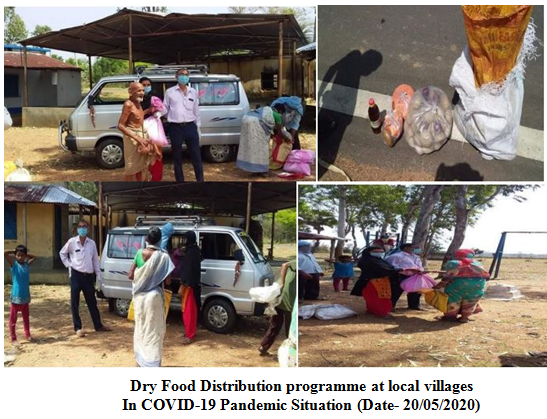
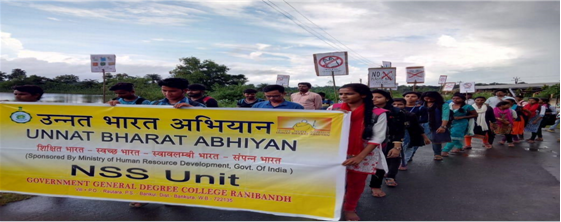
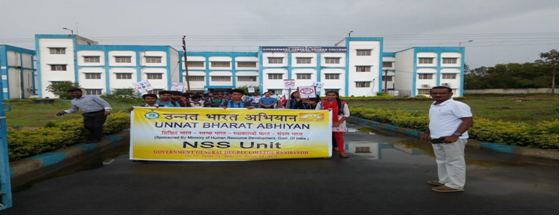
Plastic Free Campus Date (19/08/2019)
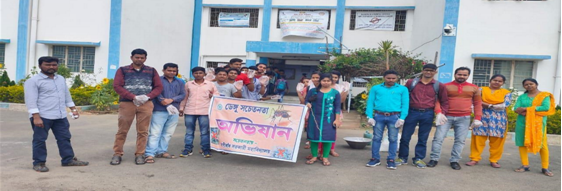
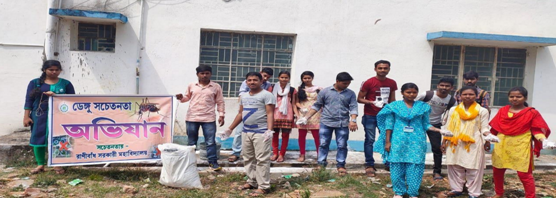
Awarness for Preventation of Dengue (Date-25.11.2019)
5. Evidence of Success:
In the realm of compassionate endeavors, the success of
our practice is evident in the profound transformation witnessed within
the adopted villages. Through impactful awareness campaigns, the once
cluttered landscape has shed its plastic burden, embracing a cleaner and
greener environment. The nurturing of water conservation efforts has
yielded a bountiful harvest, as villagers now flourish with improved
water management and reduced scarcity. The diligent campaigns against
dengue have borne fruit, as the village's defenses are strengthened,
warding off the threat of the disease.
Amidst the shadows of the COVID-19 pandemic, the warmth
of philanthropy enveloped the villages, extending a helping hand to
struggling families, and providing them with a glimmer of hope in trying
times. Most significantly, the aspiration for education glows like a
beacon in the hearts of the youth, empowering them to break free from
the chains of poverty and embrace a brighter future.
6. Problems Encountered and Resources Required:
The major challenge we face in our compassionate practice
is undoubtedly finance and awareness in some percentage of villagers. As
a small group, we have wholeheartedly dedicated ourselves to making a
positive impact, utilizing all available resources to the best of our
abilities. However, the overwhelming poverty entrenched in these
villages necessitates substantial philanthropic financial aid to drive
meaningful change.
With increased financial aid, we can amplify our
educational initiatives, awareness campaigns, and sustainable
development projects. Empowered with additional resources, we can
enhance medical support, establish educational scholarships, and foster
community engagement on a broader scale.
We invite the hearts of philanthropists and compassionate
souls to join hands with us, empowering our college's compassionate
practice and creating a ripple effect of positive change that transcends
the boundaries of poverty and transforms lives for generations to come.
Together, we can write a new chapter of hope and resilience, crafting a
brighter future for not only the current five villages but also those
waiting to be embraced by our unwavering dedication.
|
